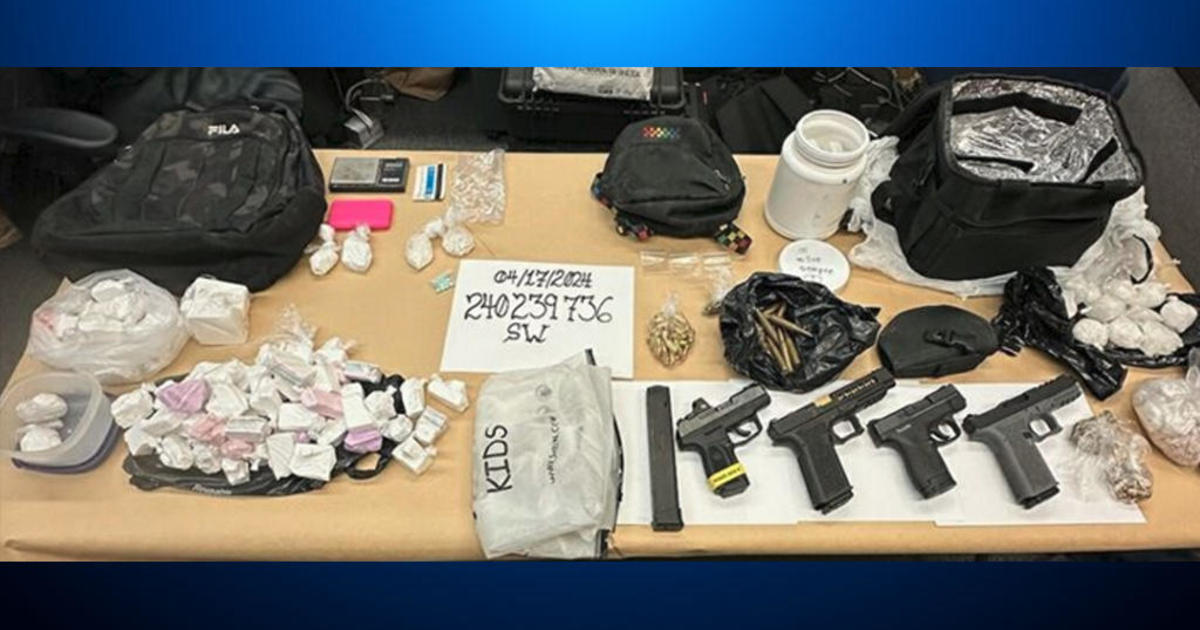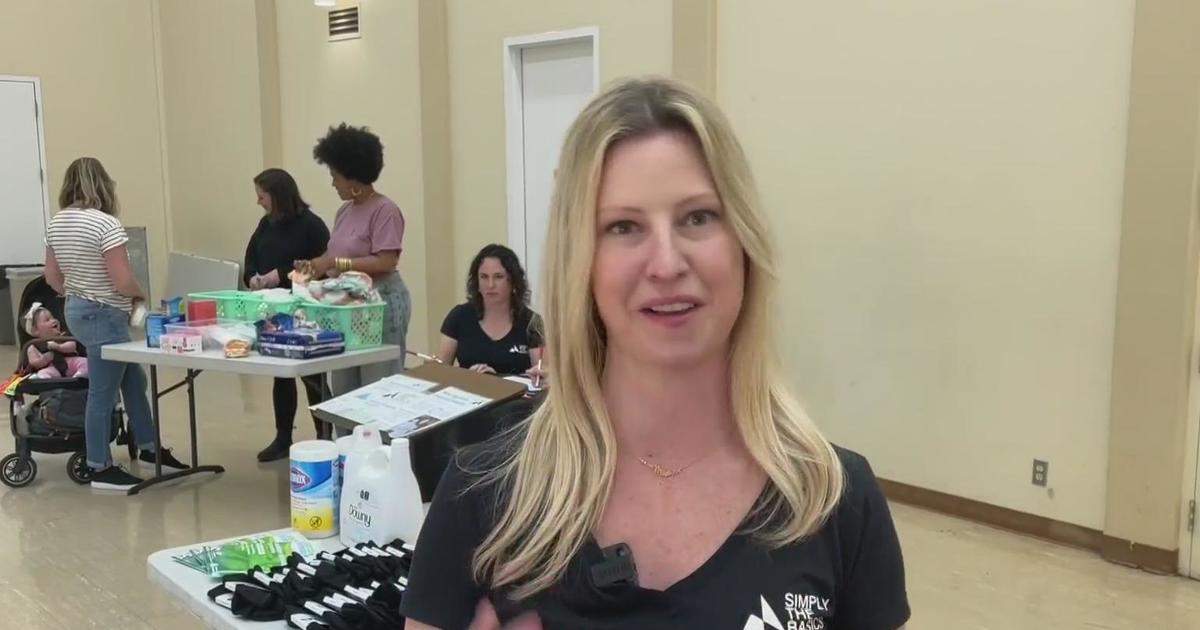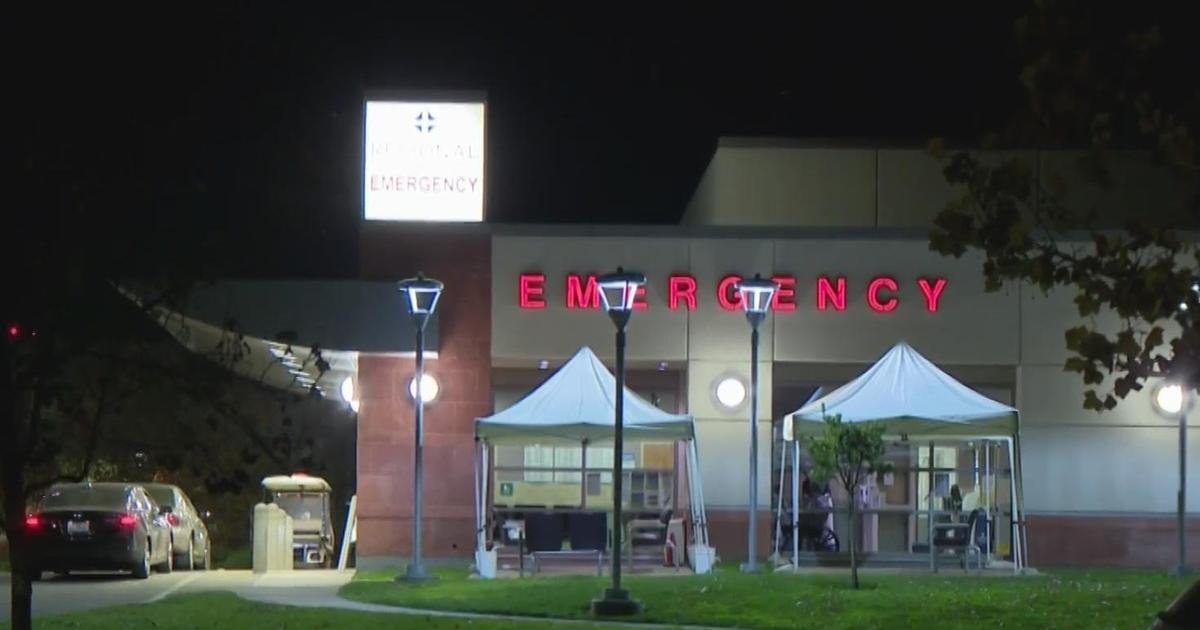About The Bay: KCBS Reporter Recalls Life-Threatening Medical Scare
SAN FRANCISCO (KCBS) - Ten years ago, KCBS reporter Mike Sugerman was knee-deep in a "typical" work week - covering stories of interest to his Bay Area audience. Specifically, Sugerman was wrapping up a 5-part series on the breakdown of the local urgent care medical system. He was reporting on ambulances being turned away from emergency rooms, facilities that were over capacity, and hospitals that were under-funded.
"At this moment, San Francisco's emergency delivery system is bursting at the seams," Sugerman said in one of his reports from a local hospital. "It's a hectic day, it is a horrible day, it's not an uncommon day."
KCBS' Mike Sugerman Reports:
But in the blink of an eye, that "uncommon" day became a truly remarkable one for Sugerman - when he became the center of the very story he was covering. And, it wasn't just breaking news - it was life-threatening news.
Just after 6:00 p.m., Sugerman was leaving work and headed for home when he began to feel as though his chest might explode.
"I'm calling from Channel 5," the building's security guard told a 911 dispatcher over the phone. "We just had somebody pass out in the hallway here."
Sugerman was that "somebody" who was on the floor of the lobby.
Sugerman was rushed to California Pacific Medical Center, where just a short time earlier, he had been roaming the halls as a reporter, tape recorder in hand, documenting the breakdown of the very system that would now determine his fate and future.
"I gave him a sideways glance and I walked over and I said are you a secret shopper tonight, Mike?" recalled Tom Pietz, M.D., one of the practitioners Sugerman had literally just interviewed for his story.
The hospital staff soon realized that Sugerman wasn't going undercover. Rather, his life was in danger. He was diagnosed with a torn aorta, and as a result, blood spewed uncontrollably through his body. Doctors determined high blood pressure was likely the cause.
"You know when it's a bad situation, a dangerous situation, and you get this kind of sinking feeling," explained cardiologist Gary Milichman, M.D. "It's like, I hope I can get this guy through this."
Milichman knew the statistics all too well - 25% of patients with Sugerman's condition die immediately, 50% within 24 hours, and there is an overwhelming chance a person will die if he or she does not quickly have surgery to address the problem.
That's why Milichman felt compelled to call Sugerman's family - a wife and two sons - to his bedside immediately.
"Aortic dissection is a life-threatening problem. It's got an extremely high mortality (rate), many people don't make it to the ER," rationalized Milichman. "I didn't know that you were going to be OK. I just felt the boys needed to see you and you know, having three sons myself of actually similar ages, it was very powerful, very touching, very scary."
After midnight, renowned heart surgeon Elias Hanna, M.D. entered Sugerman's operating room, working on him until dawn. Hanna had 12,000 such procedures under his belt, but determined Sugerman's case to be one of the toughest ever on the operating table.
"When you intervene and save someone's life and you know that sometimes it's luck, you know, and sometimes it's divine intervention," Hanna theorized. "I don't know."
One thing that doctors did know was that, as Sugerman recovered, he needed to address the lifestyle factors that contributed to his high blood pressure.
"There's always stress in our lives. I mean, there's always something bad going on in our lives, you know, in our family, in our world, and it's good to do things about it and help with the problems in the world or your family but getting upset about it doesn't help you deal with it any better," reasoned Pietz.
Today, Sugerman acknowledges that he used to worry about "everything" - money, family, work. But he also realizes he's been given a second chance.
"You have a scar on your chest and every day you get out of the shower you know that you're one of the luckiest people around to be alive," Pietz reminded him. "Even though we all are, we tend to not have that reminder or that appreciation of that."
And what about the story Sugerman was initially covering - the taxed emergency medical system? Pietz, who now runs CPMC's Emergency Department, described an improved system - one that's not as overcrowded, thanks in part to an increase in the number of alternatives for alcoholics, mental patients and other individuals who used to present to the ER without immediate medical needs. That, said Pietz, makes it easier for the ER staff to save lives - just like they saved Sugerman's ten years ago."
(© 2011 CBS Broadcasting Inc. All Rights Reserved. This material may not be published, broadcast, rewritten, or redistributed.)



